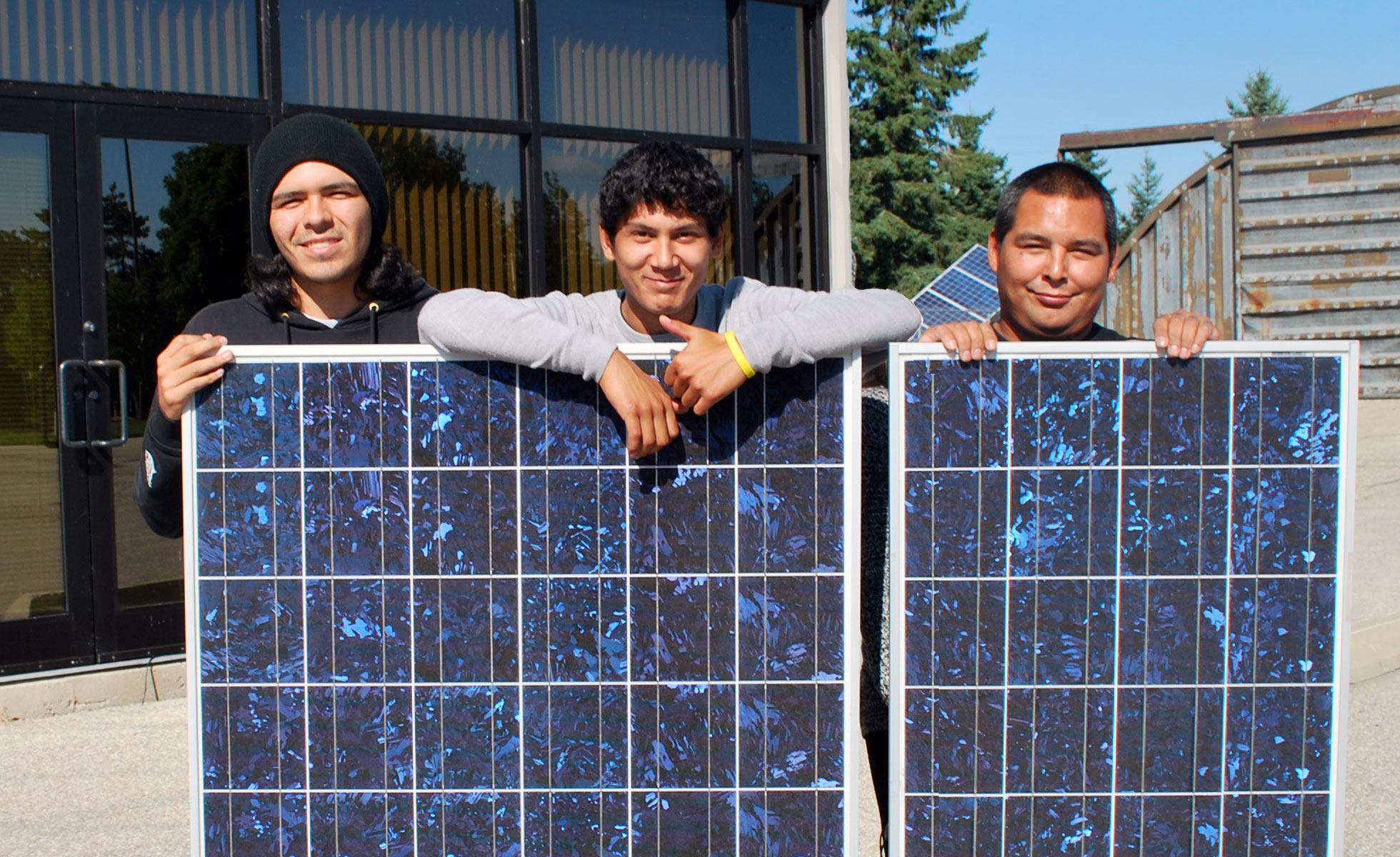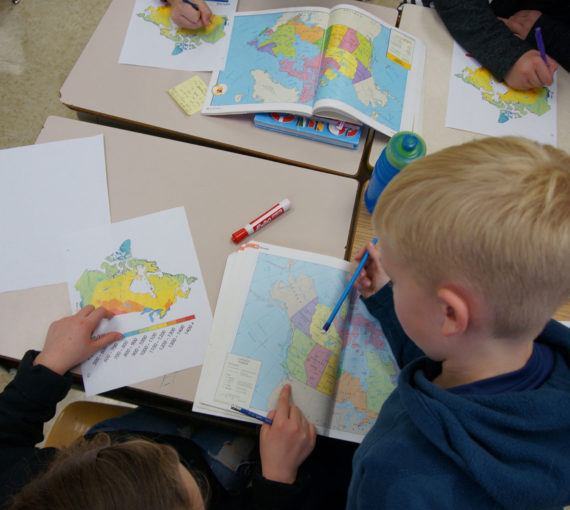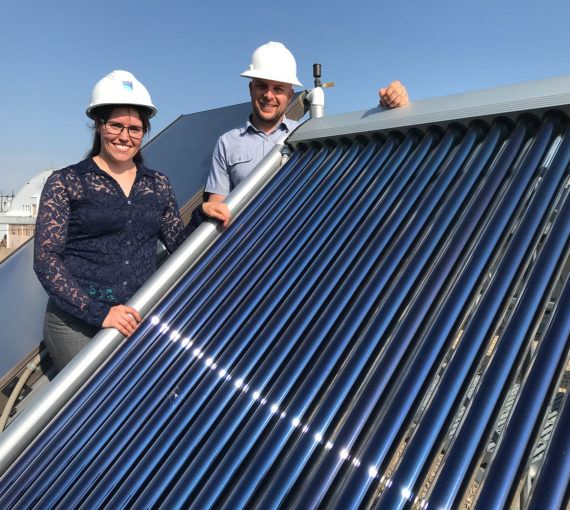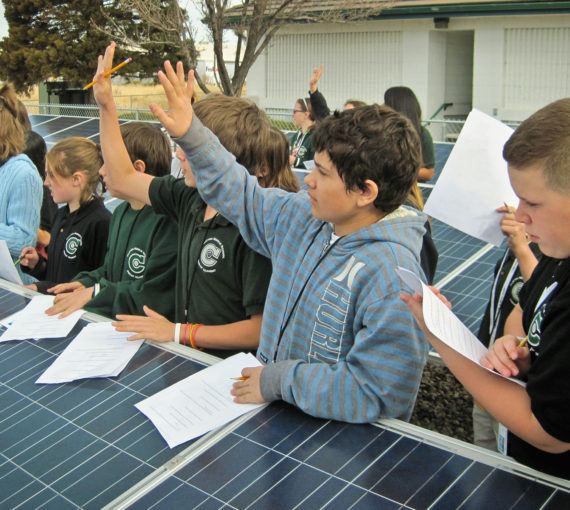
Relay Education’s innovative programs are teaching the next generation of leaders about the value of renewable energy in their everyday lives. (Photo: Relay Education)
With the Ontario government cancelling more than 750 renewable energy contracts and repealing the Green Energy Act, environmentalists are wondering what they might have done differently. How could they have prevented this broad attack on the wind turbines and solar panels central to the energy transition?
Some are suggesting they could have done a better job creating a pro-renewables culture. It’s not enough, they say, simply to put wind farms up and hope for the best. We also need to show local people the benefits that accrue for themselves and their communities. We need to show Canadians that they have a stake in renewables’ development and preservation.
That’s the view of Relay Education, a Toronto-based charity that works to teach Canadians about the value of renewable energy in their everyday lives. It offers a range of programs for adults and young people, from classroom workshops that show sixth-graders how to build (and race!) solar-powered cars to two-week college courses that help youth become wind turbine technicians.
“Education is the foundation of the energy transition,” says Relay Education communications manager Kelly Park, who’s also an accomplished photographer. “People need to know about renewable energy’s benefits.”
Abasi Sanders, Relay’s manager of youth programs, says the organization helps respond to renewable energy myths — especially those concerning wind power — by presenting factual information. “We work with schools and communities to elevate conversations with the public,” he says. “Through face-to-face discussions, we can share information so people are informed when making decisions about renewable energy.”
Creating a renewables-positive culture starts with young people.
“We begin with kids, so they’ll grow up supportive of renewables,” Park explains. “Informed youth take the messages to their parents.”
Sanders, who has been an educator for over 10 years, adds, “The younger generation is more environmentally aware than our generation. They’ll be huge advocates of sustainability.”
One group Relay focuses on is First Nations youth aged 15 to 29. A crucial goal, Park says, is giving them “hands-on experience to get jobs.”
Education is the foundation of the energy transition. People need to know about renewable energy’s benefits.
Kelly Park, Relay Education
Since 2014, the organization has engaged 30 Indigenous communities throughout the country. Relay recently partnered with southern Ontario’s Conestoga College to offer members of the Walpole Island First Nation training in wind-turbine operations and maintenance. The technicians’ program enhanced the job prospects of more than a dozen unemployed or underemployed young people.
Relay also offers a Green Collar Career workshop that introduces high school students to environmentally sound occupations, showing how they can bring satisfaction and good pay. “We teach kids they can do great work in their community and still make a living,” Sanders explains. The program helps participants assess their career interests and learn skills such as networking and interviewing for jobs.
The idea is to broaden the green workforce and enlarge Canada’s pro-environment constituency. It appears to be working. Braeden, 14, and Jeremy, 15, participated in the workshop in Ottawa.
“I was thinking of going into the sciences, like an environmental scientist,” Braeden says. “I think it’d be a good job that I can see myself in.”
“Walking around the class, seeing all the jobs, it’s like, oh, wow, there’s a lot to choose from,” says Jeremy. “I can see myself working in at least one of these jobs.”
Renewable energy could use some friends right now. The more we demonstrate that it creates employment — especially for young people — the more friends it will make.
Renewable energy is empowering communities across the country. Charged Up is the story of you — of all of us — on a mission for a cleaner, healthier, charged-up Canada.



